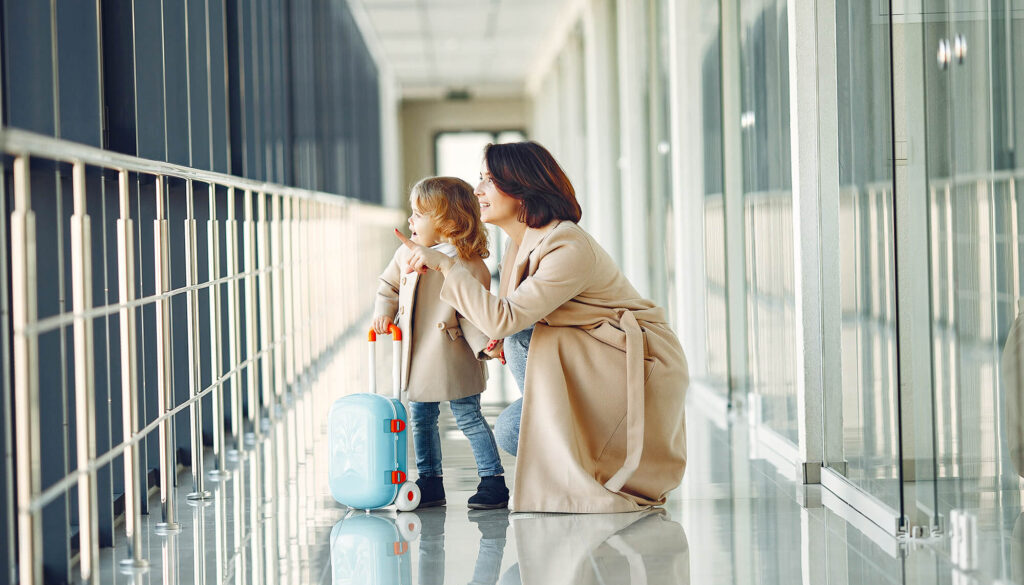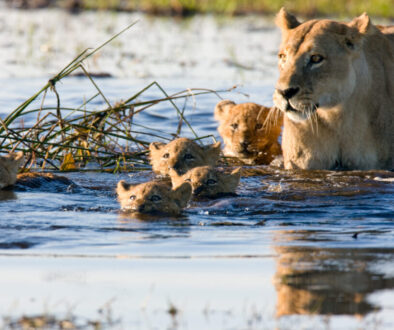Travelling with Children
Does planning a trip with your young children feel daunting? While there may be new worries that never crossed your mind in your child free travel days, travelling with children doesn’t need to be scary! Here are some factors to consider in your planning as well as tips for keeping your child healthy on your travels. Preparation is key!
Ensure immunizations are up to date
Make sure your child’s routine immunizations are up to date. Visit a travel clinic 6-8 weeks before your departure for health advice and travel vaccines. The vaccines recommended will depend on your destination, length of travel, type of travel, and your child’s age. If you are travelling to an area with risk of measles, the measles, mumps, rubella (MMR) vaccine can be given as early as 6 months of age, and then repeated with the routine vaccines at 1 year of age. Some possibilities for travel vaccines that are not included in the routine vaccines include:
- Hepatitis A
- Typhoid
- Traveller’s diarrhea and cholera
- Yellow Fever
- Japanese Encephalitis
- Rabies
- Meningococcal meningitis
Preventing and treating traveller’s diarrhea
The most common travel related illnesses affecting children include diarrhea and other gastrointestinal illnessess. Diahrrea can cause infants and children to become dehydrated more quickly than adults. Some things you can do to reduce your child’s risk of traveller’s diarrhea:
- Breast is best! Breastfeeding is the best way to prevent illnesses spread through contaminated food and water. If your infant is formula fed consider bringing formula from home as those available abroad may not be the same.
- Drinking water (and water for brushing teeth and preparing infant formula) should be bottled water or treated by boiling or another method of purification. Methods to purify water can be found here. Avoid ice, fountain drinks, and anything that could be mixed with untreated water.
- Food should be cooked fresh and hot. Avoid salads, and any raw fruits and vegetables that are not peeled by the caregiver. Cooked vegetables are safest as are fruits that peeled immediately before giving to your child.
- Avoid dairy products as they may be diluted with untreated water or may not be pasteurized.
- Take care to ensure proper hand washing and cleaning bottles, pacifiers, teething rings and toys that fall to the floor or are handled by other people. Use bottled or treated water to clean these items. Wash hands well after diaper changes. Bring an alcohol-based hand sanitizer to use when soap and water is not available but keep in mind that it is not effective against all germs so wash with soap and water as soon as possible.
Treating traveller’s diarrhea:
- The biggest concern for an infant or child with diarrhea or vomiting is dehydration. Oral rehydration salts (ORS) packets are available at pharmacies and should be brought from home to add to clean water to give to the child. Continue breast or formula feeding in addition to ORS. Older infants and children should continue to eat solid foods in addition to ORS.
- Seek medical attention if your infant or young child has
- signs of moderate to severe dehyration
- bloody diarrhea
- temperature >38.6º C
- Persistent vomiting or diarrhea (unable to keep down ORS)
- Do not give children bismuth subsalicylate (i.e. Pepto-Bismol) to children younger than 12 years of age. Breastfeeding mothers should also avoid this.
- Parents may want to carry an antibiotic from home (azithromycin) for treatment of more moderate to severe diarrhea. Medical attention should be sought if children do not improve with antibiotic treatment.
Malaria
Malaria is a disease caused by the bite of an infected mosquito. Children are at an increased risk of severe complications of malaria. If possible avoid taking young children to areas where malaria is present. Otherwise, the best way to avoid malaria is to avoid being bitten by mosquitos!
- Sleep in rooms with air conditioning or screened windows or bed nets
- Use mosquito netting over infant carriers
- Dress children in long sleeve, light coloured clothing and avoid strongly scented products
- Apply Icaridin 20% or DEET 10% to exposed non sensitive areas of the body to children 6 months of age and older
- Give your child an antimalaria medication. The type and dose depends on your child’s age, weight, as well as your travel destination. Your health care provider will best advise regarding choice of antimalarial medication for your child.
Infections from soil
Children are more likely to have contact with soil and sand where various infections and parasites can be transmitted. Be mindful:
- That your child wears protective footwear and plays on a sheet or towel rather than directly on the ground
- Clothing should not be dried on the ground.
Air Travel
Pressure in the middle ear when the plane is descending can cause pain for infants and children. Swallowing or chewing can help to equalize the pressure and decrease the pain. Here are a few ways to help with this:
- Infants can breast feed or suck on a bottle
- Older children can try chewing gum
- Antihistamines or decongestants have not been shown to be of any benefit
Injury Prevention
- Children weighing ≤ 40lbs should be restrained in age-appropriate car seats or booster seats when travelling in vehicles, which must often be brought from home. Transportation should be arranged in vehicles with seat belts and other safety features.
- Ensure close supervision of children around water and ensure protective foot wear is worn.
Sun
- Children age > 6 months should wear sunscreen with at least SPF 30 which should be reapplied as needed and after sweating and water exposure.
- Infants < 6 months should be kept in the shade and wear clothing that covers the entire body.
- Consider sun-blocking clothing as well as hats and sunglasses
- More tips about sun safety can be found here!
Travel Kit
Here are some suggestions of items to bring in your travel kit:
- Insect repellent containing DEET 10% or Icaridin 20%
- Oral rehydration salts
- Water purification device (i.e. chlorine tabs, filter, UV light, etc.)
- Medication recommended by your health care provider for fever or traveller’s diarrhea
- A waterproof sunscreen with at least SPF 30
- A thermometer
- Basic first aid kit for minor injuries (gauze pads, bandages, alcohol swabs)
- Mosquito net (depending on your itinerary)
- Hand sanitizer
While a few of the above topics may cause some worry, this blog was not meant to scare you, but prepare you! Awareness and preparation is key to a safe and healthy trip with your children!



